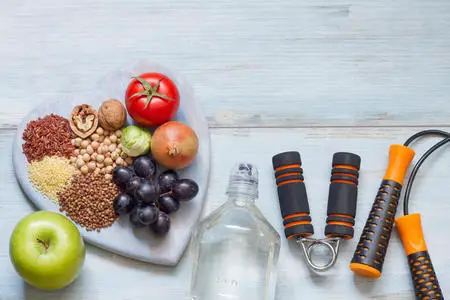
How to Live Longer - Tips & Recommendations for Longevity
What can you do to live longer? The average life expectancy in America is just under 79 years, but living a longer and healthier life is possible. By taking several steps, you can develop a healthier lifestyle and increase the chances of living a long and full life. Keep reading to learn what steps you can take to live a longer life.
Stick With a Healthy Diet
Make sure that your diet is balanced and complete because it will help you live longer. Keep in mind that healthy eating doesn't have to mean boring eating. Grab a cookbook or visit your favorite recipe websites and you can find inventive ways to cook healthy meals.

Try to limit your consumption of processed foods that contain refined sugars and other ingredients that are difficult to pronounce. While a little red meat is a good source of iron, too much red meat can be bad for your heart. Good substitutes for diversifying your meat intake are fish or lean chicken, or go meatless with chickpeas and lentils.
As your parents probably told you when you were a kid, load up on the vegetables. If the weather's warm, find a farmer's market or ask a friend to grab some fresh lettuce, kale, and tomatoes the next time they visit. Choose whole-wheat bread and turn to herbs as a source of seasoning — not salt. If you like salt, you can use potassium salt which is better than sodium, health-wise.
As you age, you might need some help in maintaining a healthy diet. Make sure to find a living situation where you can have your dietary needs met. Senior living communities are happy to offer many healthy options for older adults with special requirements.
Make Your Diet Spicy
Yes, that's right — choosing the spicier salsa can be good for longevity. Research suggests that hot peppers can reduce your risk of death.

You don't have to overdo it if your tolerance for spice is low. Even a little heat can help release endorphins, which make you feel good and cut down on aches and pains. So reach for those red pepper flakes the next time you're cooking dinner.
What exercises help you live longer?
We've known for a long time that exercise is the key to good health. You look and feel better when you do it. The benefits don't stop there.
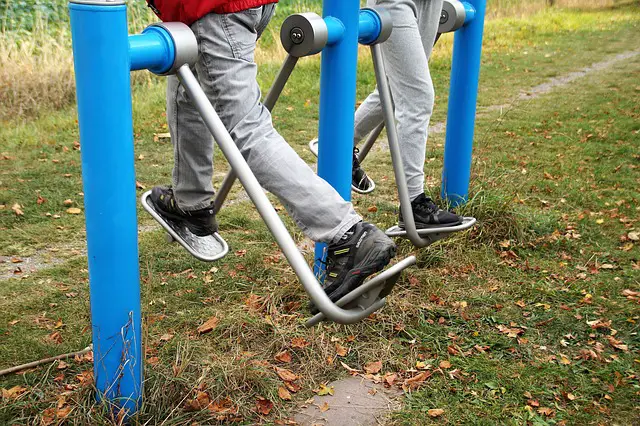
Maintaining a regular exercise routine can cut your risks of heart disease, certain cancers, and diabetes. Aim for about 150 minutes of exercise each week. You don't need to do powerlifting or run hills to get in your workout, either. You just need to break a sweat every day.
Start by lacing up your shoes and walking. You'll get your heart rate up and have an excuse to find a walking partner. If you live in an assisted living community, there may be a walking group there you can join. The added socialization will help you stick with the routine and provide conversation. As always, consult with your physician before you begin an exercise regment.
Limit Alcohol Consumption
It's good (even healthy) to kick back and enjoy a glass of wine on the weekends — just make sure that you take some time off from the alcohol consumption. Too much can speed up the aging process.

For women, this means stick to no more than one drink each day. For men, two drinks should be the maximum. Consult with your doctor about how much alcohol is okay for you.
As you age, your tolerance for alcohol shifts, too. You might not be able to tolerate as much and alcohol can make you more prone to forgetfulness and physical instability. Keep an eye on how much you drink.
Drink Green Tea
Green tea is the perfect way to calm yourself down and relax after a busy day. Also, it can be an effective way to lower the chances of stroke.
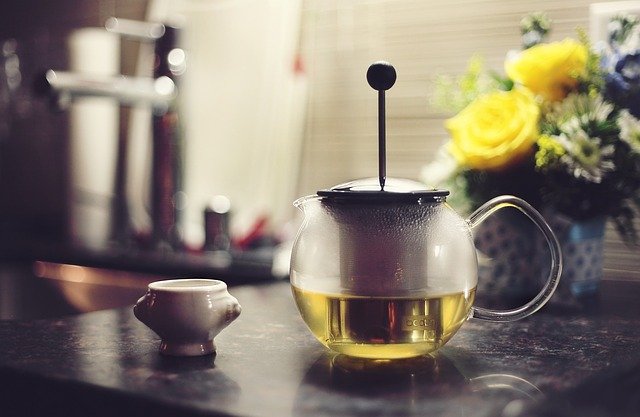
Pour yourself a cup the next time you want to sit and read a book. Green tea pairs well with board games, visits with friends, and quiet evenings on the porch.
Drink Coffee
Do you love coffee? You're in luck — it's good for you as long as you don't overdo it! Drinking about 2 cups of coffee each day will lower your risk of early death by 12%, according to recent studies.

Of course, these studies are looking at standard cups of coffee. Go easy on the half and half and avoid too many rich coffee concoctions that are loaded with cream and sugar. Loading yourself with too much caffeine can make your body upregulate neural receptors and metabolism, shifting your body into a more unstable state. Use coffee as a support tool, it's not a substitute for anything - especially sleep.
We'll say this one more time: sleep is non-negotiable!
Does drinking water help you live longer?
Drinking water not only helps you feel more energetic and look refreshed, but it also can help you live longer. As it turns out, drinking enough water each day can reduce your risk of certain cancers by up to 50%.

So the next time you reach for a glass of water, remind yourself that you should do that about 10 more times during the day. Your skin, blood, and brain will thank you by staying healthy and performing at their peak.
Water quality is another big issue you might want to look into, depending on where you live and then decide if you should continue drinking tap water or buy bottled.
Take Your Vitamin D
Try to go outside and spend time in the sun for at least 15 minutes each day. Some research suggests that the lower limit should actually be 30 minutes per day. Sunshine is the easiest way to get your vitamin D, which is good for your longevity. Another difference between sunshine and supplements is that you can overdose on supplements but you can't overdose on Vit D using sunshine.
Also check your Magnesium levels, because all the vitamin D in the world won't be of much use withuot ample amounts of Magnesium in your system.
If you live in a cloudier climate or need to stay indoors, add some tuna or salmon to your diet as another source of vitamin D.

Taking a supplement is one more way to get the vitamin, but you should talk with your doctor first to make sure that it's necessary.
Don't Smoke
You've probably heard about the dangers of smoking since childhood, and for good reasons. Smoking is the cause of 30% of all annual cancer deaths. These deaths are preventable if you avoid smoking.
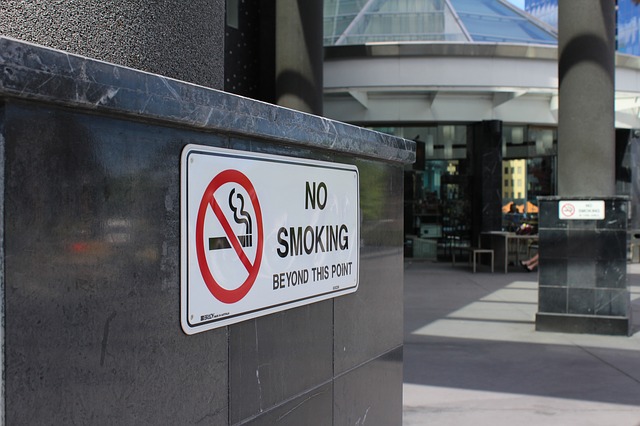
If you're already a smoker, it's never too late to stop. You'll start to cut the risks of certain cancers almost immediately, and you should see your blood pressure drop.
Stay Safe
You're legally obligated to buckle your seatbelts, but what about other safety precautions? You can prevent unexpected premature death by erring on the safe side.
Wear a helmet when you ride your bike, even if the terrain seems level and clear. The same goes for riding a motorcycle.

When you're using chemicals or power tools, don't forget the goggles and gloves. Ideally, use chemicals outside where there is better airflow.
Wear sunscreen when you're outside. Skin cancer, including melanoma, is on the rise in America. But with sunscreen, sunglasses, and hats you can protect your skin. It's also smart to avoid being outside for long stretches at midday.
Go Nuts
Go nuts by eating nuts, that is. Scientists have found that eating a few servings of nuts each week can help keep your blood pressure in check and reduce the chance of getting some cancers and diabetes.
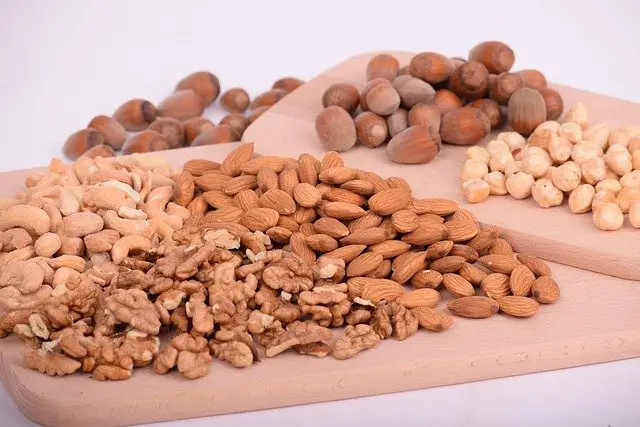
Choose the nuts with the least amount of seasoning. Raw nuts are the healthiest choice, while flavors like barbecue and ranch can heap on the salt. When in doubt, check the label and look for the sodium content.
Adopt a Pet
Having a furry companion is a great way to enhance your mental health and life expectancy. Loneliness is a common problem at all ages, but a house cat or dog can be a meaningful solution. You can adopt a rescue from a local shelter and do even more good that way.

If mobility is an issue, adopt a cat. The warm cuddles and purring are soothing for us humans and playful cats are fun. Unless they cause a mess, and even then we tend to forgive them. For anyone hoping to be a little more active, a pet dog can provide the incentive to get out and walk more, or run, swim, play ball. Training is necessary so be responsible - don't consider a pet if you're not willing to take on the responsibility of doing proper animal training.
Spend Time With Friends
Socialization is not something that should be limited to childhood. As an adult, make sure that you have a strong network of friends. Being social will boost your mood and give you a reason for living.

Aim to have friends of all ages, too. Once you hit your golden years, having some younger friends will lift your spirits when you're stuck inside and keep your mind fresh.
On the other hand, having friends from your generation will give you hours of shared experiences to bond over. Consider finding a community that will let you build a social group into your senior years.
Find a Spiritual Practice
Spirituality is an integral part of wellbeing - even the WHO (World Health Organization) supports this claim. Lots of people want to find meaning in their lives, and doing so can be good for your health. If you're a regular attendee at a church, mosque, or other spiritual space, chances are that you will live longer.

People who participate in spiritual or religious practices report feeling a sense of calm and purpose. It's also an excellent way to socialize and build a support network that can help you through life's ups and downs.
Meditation, for example, is a powerful tool for resetting your mood, attention, and focus. It has long been ignored by scientsts who were mostly focused on researching diseases. But now more and more research papers are coming out claiming that meditation has much more profound benefits than science could have ever assumend before.
Most religious spaces are very welcoming of newcomers, too. If you're not sure what you believe, it's never too late to join a friend at a service and see what you think.
Stay Positive
Holding grudges and seeking revenge are never good practices for your state of mind. Instead, stay positive about the future and you may live a healthier life.

Learning to forgive people for past problems is one of the hardest things to do, but if you can work your way toward forgiveness and sustain an optimistic outlook, you may keep your blood pressure from spiking.
Take some time alone to reflect on what you're grateful for — this doesn't (and shouldn't) have to happen only at Thanksgiving. Keep a journal so that you can let out the anger and seek reconciliation. You may just find that you wake up feeling better.
Discover What Gives Your Life Meaning
A meaningful practice could relate to your job, or it could be a hobby that you do outside of work. The point is that you want to have some activity in your life that gives you joy and meaning. This could extend your life expectancy.

Do you enjoy woodworking? Set up space in your garage or basement so you can have time to carve or build things. Many assisted living communities have woodworking shops for you to use.
Does volunteering with underserved populations invigorate you? Find an organization or two in your area and commit to helping them a few times each month. You don't have to do something big and flashy to make a difference and feel significant.
Go On a Vacation
Did you know that you can lower your risk of heart attacks by going on vacation? Studies have shown that taking a vacation every two years could lower your chances of developing coronary heart disease problems.

Set aside some money each year for "fun" activities, even if it's just a long weekend somewhere. The planning process itself can give a nice boost to your mental health. And you'll find that you feel recharged and ready to move on with things when you return.
It will be an even more enjoyable vacation if you know that you don't have to deal with property upkeep while you're gone. Finding a living community where you don't have to worry about watering the lawn (or mowing it) will free you up to focus on the fun.
Minimize the Stress in Your Life
This is easier said than done, but it's good news for your mental health and blood pressure if you try to minimize the sources of stress in your life.

Have an annoying coworker? Avoid them or ask your boss (or HR) to intervene.
Feel like you don't have enough time for yourself? Talk to your spouse or loved ones to make sure that you're not taking on a disproportionate number of responsibilities. There is value in saying no to things, and if it helps reduce the stress, do it.
Note that acute stress can be beneficial but chronic stress can cause physical illenss. There are two types of stress: eustress and distress. Make sure you inform yourself thoroughly on these. Stress, challenges and difficulties are also what makes us grow but has to be managed properly - that's how to live longer and that's how to live a happier life.
Still Wondering How To Live Longer? Sleep and Nap
Getting a good night's sleep helps you wake up and feel alert as you start the day. Try to get the standard 7 to 9 hours per night. Doing this could reduce your chances of stroke and heart attack.
Since many people struggle to get the necessary amount of shut-eye, there are lots of strategies to promote quality sleep. Turn down your thermostat before you hit the sheets to create a cooler environment, and stick with a consistent sleep schedule. Make your room as dark as possible and turn on some ambient noise if it's too quiet.

Sleeping doesn't just mean the kind that happens at night. Remember those cat naps that you took in the afternoon as a kid? Keep doing them because they may help you live longer, too.
New research suggests that napping for 20 minutes each day can keep your blood pressure at a safe level. This translates to a lower risk of heart attack as you age. Napping isn't a sign of laziness, it's a sign that you're doing something good for your health.
The Bottom Line on Living Longer
The quest to live longer is one that can benefit from even the smallest actions that you take. If you've wondered how to live longer, know that simple changes to your daily routine can add years to your life.
As you start to think about the best place to spend those years later in life, visit us and find a senior living community that is right for you.